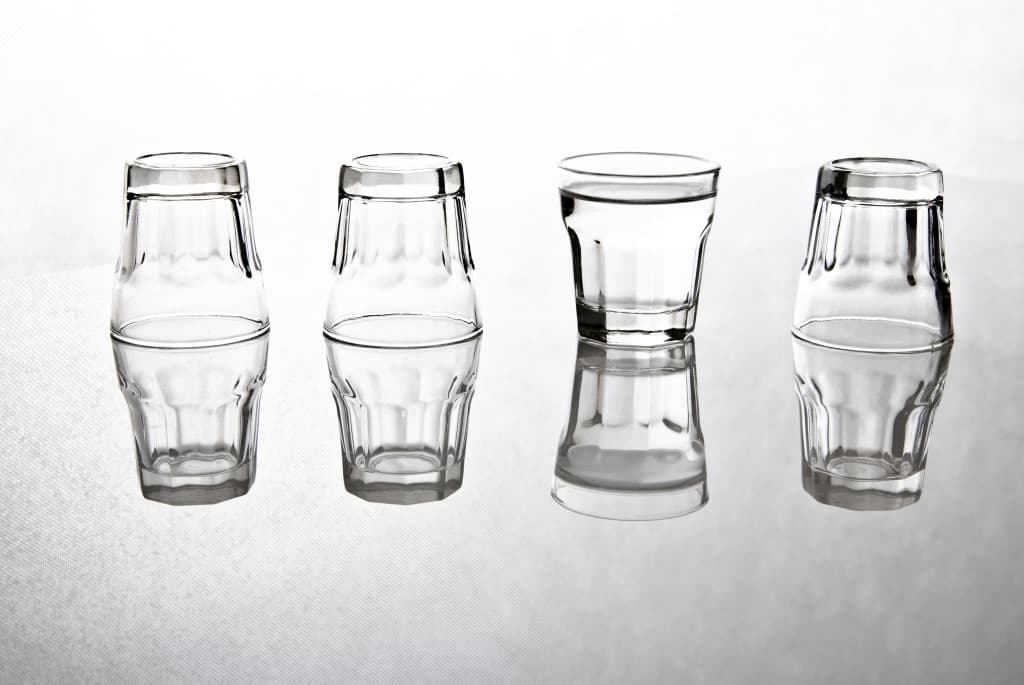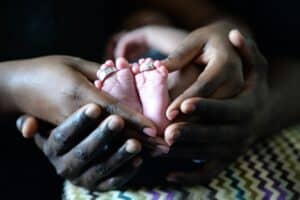
In the late summer, some years ago, I woke one morning to a lavish Christian hangover.
Though it’s still difficult to accept the moniker alcoholic, I know that I am, in the most colloquial sense, dependent.
I have found that at my most drunk, I am also my most fun. When the numbing of the liquor set in, when it deadened fiery anxiety and inhibitions, a permanent smile washed over me, and the clever, quippy comments rained. I felt less angst; I felt the dissipation of life’s groaning.
In this age of Christian liberty, of the disentanglement of the Christian ethos and prohibition, I found myself stretching deeper and deeper into the bottle in an effort to avoid pain. I found myself dependent upon something other than the God in which I professed faith.
I found myself dependent upon something other than the God in which I professed faith.
We’ve all felt the pain in this groaning and grinding of life. We all cope in different ways. Some drink, some abuse prescription drugs, some overeat, some undereat or puke or have sex or amass wealth or give all their wealth away. Some overintellectualize life, build superstructures of theological certainties so that they do not have to confront the real, abiding, fearsome, mysterious God.
Once, I was a hopeful man. Once, I spouted verses in the cloying language that belongs to all clichés. “All things work together for good,” I said, and for the most part, they always had. Once, I believed my career—as an attorney for the largest firm in the grand state of Arkansas—would be a shining success, my marriage a model of fidelity, my four boys—Isaac, Jude, Ian, and Titus—the strapping sort of Ozark woodsmen who could fell mighty oaks with a single axe swoop.
Amber and I were church pillars in those days, the kind who led home groups in our spacious farmhouse hewn of 1938 Ozark stone. On the weekends, we sat in our deep couch, swirling glasses of wine with younger married couples and schooling them in the art of connection. We quoted Scripture, prayed often and together. Our eldest children learned John 3:16 before the other boys in their Sunday morning class. Things were sorted, figured, and comfortable.
That was before we had Titus, our mystery baby who it seemed we would lose. After a particularly discouraging hospital stay, with no hope in sight for Titus, I called Joseph, my friend and brother, and told him that I could pray no more. “Tell the fellas,” I said, speaking of our Friday-morning prayer group, “that they’ll need to pull the weight of prayer from here on out. I’ve prayed all the prayers I know.”
I hung up the phone and reached for the Nalgene bottle of gin I cajoled my sister to smuggle in. I poured it over the crushed ice from the vending machine in the hallway and drank deeply. I drowned the pain, drowned myself in the ice-cold gin, and I did it in cold blood.
This was my first conscious barter. Trading pain for the closest vice, I slipped into a knowing numbness. Prayer seemed an impotent remedy; gin did not.
I come from a long line of Southern gentlemen, and like them I rather like a good and proper drink. Whiskey, beer, and wine—they’re all fair game. As an attorney living in the South, I always have an opportunity for evening cocktails. There are happy-hour meetings with clients, charity galas with open bars, seminars with evening mixers. Drinking is bound up in both my genes and my occupation.
There’s not a drink I don’t like, which is, perhaps, the problem. I’m an imbiber of tequila, scotch, and vodka. Gin, though? Gin is the liquor of nostalgia; it’s the water for my southern roots. Gin is the lover of lovers, the drink of fond memories, familial bonds, and adventure.
Once, I toasted all things beautiful—my marriage, good friends gathering around the table, a fine piece of poetry, the honey sky over the Shire—but the toasting of joys and the drowning of sorrows are closer kin than one might imagine.
…the toasting of joys and the drowning of sorrows are closer kin than one might imagine.
Somewhere along the way, my affinity for gin (and whiskey and beer and wine and any old intoxicant) and comfort collided. Somewhere, my thirst for distraction from the pains and poverties of life grew into a sweltering, parching thing. There are always feelings to be numbed, anxieties to tamp down, and panic attacks to avoid. I suppose I could have turned to things eternal—didn’t Jesus promise us rest?—but we seem to have a way of losing ourselves in our man-made salves—the bottle, the pill, the cheeseburger, self-inflicted starvation.
I suppose we’re all drunk on something.
But not tonight. Tonight I’m writing sober for the first time. Fearful I would never write another creative sentence without the sauce, I called a friend, and she challenged me to see what words might come without the liquor. She challenged me to write through my sobriety. Perhaps 90 days’ worth of clean words? And so, here I am, recording my first thoughts on the matter, and it hurts.
This is my first pass, a flyby attempt at recording the things that come in the newness of sobriety. In this scratching of words, I’m hoping to find creativity outside of the bottle. For so long now, I’ve written from the gin or whiskey or wine. I have written poetry and prose—all under the influence. I’m afraid sobriety will mute the muse. A friend tells me this is mockery of God, that the liquor is not the muse. Another writer, a good friend who’s had her own battle with the bottle, tells me her best stuff came when sobriety found her.
Maybe they’re right.
Seth Haines is a writer, attorney, and worship leader. He and his wife, author Amber Haines, live in Northwest Arkansas with their four sons. He writes about faith, creativity, marriage, and culture. This article is excerpted from Coming Clean: A Story of Faith (Zondervan, 2015) and appears here by kind permission of the publisher.



2 Responses
Thanks for sharing. Powerful words and a provocative message.
Congratulations to the author, and may God bless you in your journey.